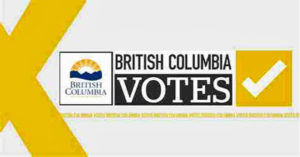
As the 2024 British Columbia provincial election draws near, the political landscape in the province is charged with intense debate and a host of key issues that will shape the campaign.
Set to officially begin when the Writ drops on September 21st, the 28-day campaign will see Premier David Eby’s B.C. New Democratic Party defend their hold on government against an ascending opposition. The chief challenger in 2024: the resurgent B.C. Conservatives, led by John Rustad, who, despite their limited war chest, aim to capitalize on voter dissatisfaction with the current government.
Key Issues in the 2024 British Columbia Election Campaign
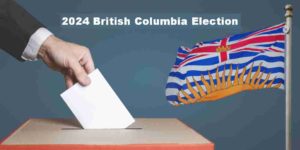
- Affordability and Housing: Housing remains the dominant issue in British Columbia politics, especially in urban centres like Vancouver and Victoria. The B.C. NDP under Premier David Eby has placed significant focus on addressing the housing crisis, with legislation proclaimed to increase the supply of affordable homes, streamline permitting processes, and combat speculation in the real estate market. David Eby has framed his party’s housing policy as one that balances affordability with responsible development, but the B.C. Conservatives have criticized the NDP’s efforts, accusing them of exacerbating the crisis by driving up costs with unnecessary regulations.
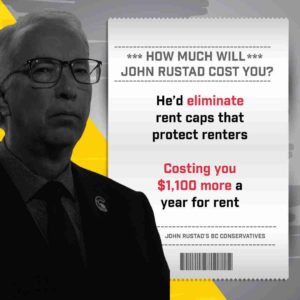
- Rent Control and Tenant Rights: The B.C. NDP has enacted strict rent controls, limiting annual rent increases to match inflation rates. John Rustad’s B.C. Conservatives have said if elected to government they would remove the cap on rent increases, arguing that rent controls hurt landlords and reduce the incentive to build new rental housing. This proposal is likely to be a key wedge issue, dividing renters, who are primarily concentrated in urban areas, from property owners and real estate investors.
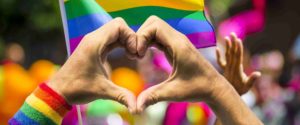
- SOGI 123 and LGBTQ+ Rights: Socially conservative elements within the B.C. Conservative Party, including leader John Rustad, have rallied against the SOGI 123 curriculum, which promotes inclusivity and understanding of sexual orientation and gender identity in BC schools. While the B.C. NDP and — earlier this year — B.C. United supported SOGI 123 as a tool for fostering inclusivity, the B.C. Conservatives’ opposition appeals to a more socially conservative base, particularly in rural areas. Note should be made, B.C. Conservative leader Rustad has said that he would remove the programme from B.C.’s public school system, while also removing and banning books from the schools he believes “indoctrinate children”. The issue of the rights of LGBTQ children enrolled in B.C. schools — the programme brought in by the B.C. Liberal Christy Clark administration in 2015, as drafted by current ABC Vancouver City Councillor Lisa Dominato when she was in the employ of British Columbia’s Ministry of Education — has the potential to become a highly polarizing wedge issue, mobilizing both progressives and conservatives in different parts of the province.
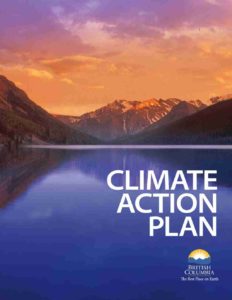
- Climate Change and Environmental Policy: British Columbia’s natural beauty and environmental stewardship are central to its identity, but climate policy has become a contentious issue. The B.C. NDP has taken a middle-of-the-road approach, supporting ambitious climate targets while also backing natural resource industries like LNG. The B.C. Conservatives, however, have been skeptical of aggressive climate policies, focusing instead on economic growth and job creation in resource sectors. This issue may pit environmentally conscious urban voters against rural communities reliant on resource extraction.
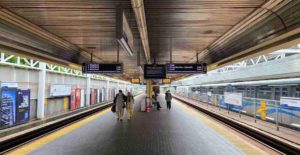
- Public Transportation: Funding for public transportation, particularly in Metro Vancouver, will be a critical issue. The B.C. NDP supports expanding transit infrastructure, including SkyTrain expansions and increased bus service, to reduce congestion and emissions. However, the B.C. Conservatives have suggested prioritizing road infrastructure and reducing reliance on taxpayer-funded transit. This issue will likely divide urban voters who depend on public transportation from suburban and rural voters who prioritize road improvements.
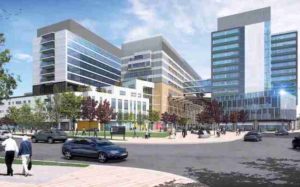
- Healthcare and Mental Health: The province’s healthcare system, already strained by the COVID-19 pandemic, continues to be a significant issue. With long wait times for surgeries and difficulty accessing family doctors, healthcare is top of mind for many voters. The B.C. NDP has pledged more funding for healthcare and mental health services, while the B.C. Conservatives have focused on increasing private sector involvement to reduce wait times and improve access.
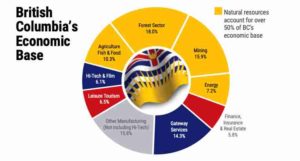
- Taxes and Fiscal Responsibility: The B.C. NDP has faced criticism for its spending policies, with the B.C. Conservatives and other opponents accusing them of driving up provincial debt and over-taxing residents. The Conservatives have proposed cutting taxes and reducing government spending, appealing to fiscally conservative voters, particularly in the interior and northern regions of the province.
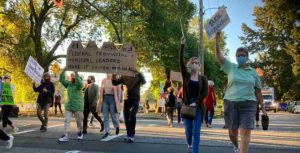
- Crime and Public Safety: Rising crime rates, particularly in urban centres like Vancouver, Victoria, Nanaimo and Kelowna have made public safety a hot-button issue. The B.C. NDP has promised more funding for police and social services, whle working with the federal government to bring in tougher legislation that would keep repeat offenders and those accused of violent crimes in custody — while the B.C. Conservatives have taken a hardline approach, advocating for tougher sentencing and more resources for law enforcement, which is likely to realized only if Pierre Poilievre’s federal Conservative Party are elected to government next year. This issue will certainly be central to debates in urban and suburban ridings, where concerns about crime are highest.
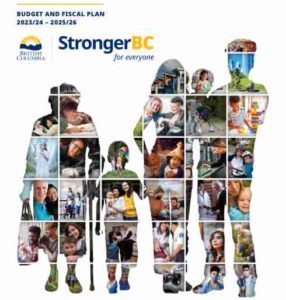
- Economic Development and Jobs: With economic uncertainty persisting post-pandemic, job creation and economic growth will be key topics. The B.C. NDP has highlighted its investments in green technology and infrastructure — which has proved successful while raising wages across the province. John Rustad’s B.C. Conservatives have emphasized the importance of supporting traditional industries like forestry, mining, and oil and gas, which are crucial to many rural communities. A B.C. Conservative urban economic development plan has yet to be announced.
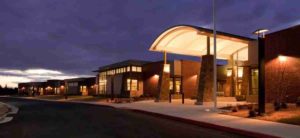
- Education and School Funding: Public education will be a key issue, especially as concerns about classroom sizes, teacher shortages, and underfunding persist. The B.C. NDP has committed to increasing education spending, while the B.C. Conservatives have called for reforms to make the system more efficient, including increased support for alternative schooling options, which may resonate with their socially conservative base.
Key Ridings to Watch
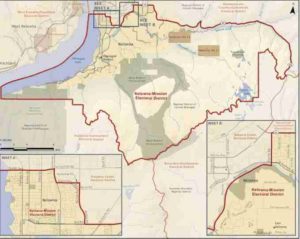
Several ridings will be crucial in determining the outcome of the election. Urban ridings in Metro Vancouver, such as Vancouver-Yaletown and Surrey-Newton, will be battlegrounds between the B.C. NDP and the B.C. Conservatives, with housing and public safety as major issues. In the Fraser Valley and Interior, ridings like Chilliwack-Kent and Kamloops-North Thompson will see heated contests between the B.C. NDP and the B.C. Conservatives, where affordability, resource development, and opposition to SOGI 123 may come to the forefront.
Additionally, suburban ridings in regions like Langley, Coquitlam, and Port Moody will be key, with issues such as transportation and crime dominating local discourse. The outcome in these swing areas could determine whether the B.C. NDP can maintain their majority or if the opposition makes significant inroads.
Voter Demographics and Turnout

Polling indicates that British Columbians aged 55 and older tend to support the B.C. NDP. This age group also tends to vote in greater numbers than younger voters, making their support crucial to the NDP’s success. If the B.C. NDP can effectively mobilize this demographic while appealing to younger voters concerned with housing affordability and climate change, they may secure another term in government. However, the B.C. Conservatives’ appeal to disaffected, older, rural voters who feel left behind by the NDP’s progressive agenda could create a potent challenge in key regions.
Wedge Issues and Potential “Bozo Eruptions”
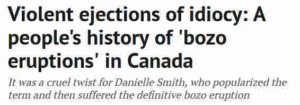
The B.C. Conservatives, under John Rustad, face a significant risk of “bozo eruptions” during the campaign. With a number of candidates espousing socially conservative and conspiracy-laden views, the party could find itself embroiled in controversy throughout the campaign period, providing the B.C. NDP with ample ammunition to exploit. Rustad’s removal of the rent increase cap and his party’s opposition to the SOGI 123 programme are likely to emerge as key wedge issues, polarizing voters and drawing sharp contrasts between the parties. These controversies may help the B.C. NDP rally progressive voters and paint the Conservatives as out of touch with mainstream British Columbians.
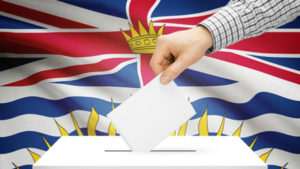
The 2024 B.C. provincial election will be shaped by a range of pressing issues, from housing affordability and climate change to education and public safety.
With the B.C. NDP well-funded and and maintaining a slim lead in the polls, and John Rustad’s B.C. Conservatives seeking to channel discontent among socially conservative and rural voters, the stage is set for a fiercely contested election.
Key ridings in the Lower Mainland, the Interior, and northern B.C. will be critical, as will turnout among older voters.
As the campaign progresses, wedge issues like rent control, SOGI 123, and climate policy will likely define the battleground, with both major parties vying to secure their share of the vote.